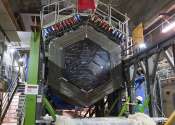New discovery is big on nanoscale
Imagine if you could look at a small amount of an unidentified chemical element – less than 100 atoms in size – and know what type of material the element would become in large quantities before you actually saw the larger ...









